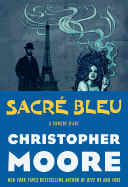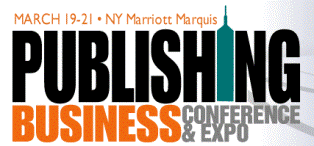 During a keynote address at last week's Publishing Business Conference & Expo, held in New York City, Marcus Leaver, the outgoing president of Sterling Publishing, offered what he described as some "common-sense prescriptions" for book publishers. "We must offer consumers an amazing value for their dollars," Leaver said, arguing for a shift in emphasis on quality over quantity. "The world does not need another book," he added. "We're still publishing far too many."
During a keynote address at last week's Publishing Business Conference & Expo, held in New York City, Marcus Leaver, the outgoing president of Sterling Publishing, offered what he described as some "common-sense prescriptions" for book publishers. "We must offer consumers an amazing value for their dollars," Leaver said, arguing for a shift in emphasis on quality over quantity. "The world does not need another book," he added. "We're still publishing far too many."
 Leaver went on to predict the rise of niche publishers who would confront the problem of discoverability by marketing their books to readers, not to the publishing and bookselling industries, and who would recruit authors to take an even greater part in that marketing process. "Our biggest challenge will not be e-books," he predicted, "but in proving that publishers will continue to be necessary." He proposed that bundling print and digital editions as a joint purchase would become a necessary option, one that would offer consumers greater choice in how they want to read.
Leaver went on to predict the rise of niche publishers who would confront the problem of discoverability by marketing their books to readers, not to the publishing and bookselling industries, and who would recruit authors to take an even greater part in that marketing process. "Our biggest challenge will not be e-books," he predicted, "but in proving that publishers will continue to be necessary." He proposed that bundling print and digital editions as a joint purchase would become a necessary option, one that would offer consumers greater choice in how they want to read.
 In a later session, Simba Information senior analyst Michael Norris traced the collapse of Borders last year back to 2001, when the bookstore chain made the mistake of partnering with Amazon.com to handle its online business. For the duration of that collaboration, Norris pointed out, Borders was unable to tap into the growing digital market; when the two companies finally split, Borders had to build up its online customer base from scratch, but the six-year gap proved impossible to overcome. Looking at the current market, Norris said Barnes & Noble was "doing a good job, but I think they're blowing an opportunity to distinguish themselves." If, he suggested, readers are still buying four to five times as many print books as e-books, B&N was in a position to create a marketing campaign that, as he put it, "gave people permission to love books" rather than pushing so hard on the Nook as a counterpart to the Kindle. He also discussed a problem he'd previously raised at last summer's BookExpo America, observing that the number of Americans who aren't buying any books at all is growing each year.
In a later session, Simba Information senior analyst Michael Norris traced the collapse of Borders last year back to 2001, when the bookstore chain made the mistake of partnering with Amazon.com to handle its online business. For the duration of that collaboration, Norris pointed out, Borders was unable to tap into the growing digital market; when the two companies finally split, Borders had to build up its online customer base from scratch, but the six-year gap proved impossible to overcome. Looking at the current market, Norris said Barnes & Noble was "doing a good job, but I think they're blowing an opportunity to distinguish themselves." If, he suggested, readers are still buying four to five times as many print books as e-books, B&N was in a position to create a marketing campaign that, as he put it, "gave people permission to love books" rather than pushing so hard on the Nook as a counterpart to the Kindle. He also discussed a problem he'd previously raised at last summer's BookExpo America, observing that the number of Americans who aren't buying any books at all is growing each year.
 At other panels during the two-day conference, publishers discussed their efforts to sell books directly to consumers through their websites, and to reach out to readers using social media. On the latter topic, Morgan Baden, social media director at Scholastic, described her company's work in promoting The Hunger Games on Facebook. The first fan page for the series, she noted, came from the publisher's British division, but when they realized how many of the participants were coming from North America, the U.S. division launched its own, more extensive effort. They now update that page with roughly three new posts each week. "The community talks to itself so often," Baden explained, that fans don't need more spurs to take part in the conversation. (Baden also noted that the fan page really is focused on the books; fans who want to talk about the movie generally gravitate to other fan pages maintained by Lionsgate to promote the film.)
At other panels during the two-day conference, publishers discussed their efforts to sell books directly to consumers through their websites, and to reach out to readers using social media. On the latter topic, Morgan Baden, social media director at Scholastic, described her company's work in promoting The Hunger Games on Facebook. The first fan page for the series, she noted, came from the publisher's British division, but when they realized how many of the participants were coming from North America, the U.S. division launched its own, more extensive effort. They now update that page with roughly three new posts each week. "The community talks to itself so often," Baden explained, that fans don't need more spurs to take part in the conversation. (Baden also noted that the fan page really is focused on the books; fans who want to talk about the movie generally gravitate to other fan pages maintained by Lionsgate to promote the film.)
As the Publishing Business Conference wound down, the event's organizers, NAPCO, remained at the Marquis to stage another conference, All About eMail Live! This one-day event was geared toward a number of industries, with sessions tackled topics like including video in emails or sending follow-up messages to customers if they've put items in an online shopping cart but then left the website without completing the purchase. There were also frequent reminders about the importance of creating email messages that were mobile-friendly--an adaptation to shifting patterns of computer usage--and a general sense of agreement with the assertion from LiveIntent's David Katz that reaching out to mobile users via email would give retailers access to the most affluent consumer segments. Above all, attendees were reminded, keep the messages short and simple; people spend an average of 28.3 seconds with the typical marketing email, so it's important not to ask too much of them all at once. It's a guideline for publishers and independent booksellers to keep in mind as they work to expand their online markets.--Ron Hogan
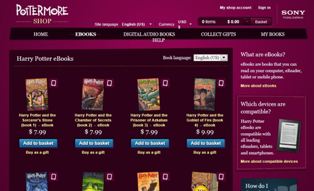





SHELFAWARENESS.1222.S1.BESTADSWEBINAR.gif)
SHELFAWARENESS.1222.T1.BESTADSWEBINAR.gif)
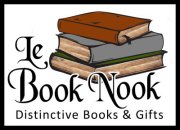 Calling it a "
Calling it a "
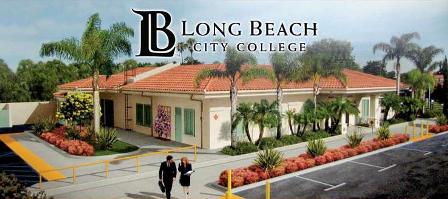 The Viking Bookstore
The Viking Bookstore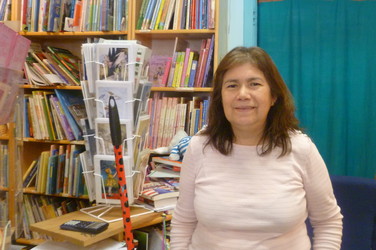 The Daily Dobbs Ferry offers a quick profile of
The Daily Dobbs Ferry offers a quick profile of  During a keynote address at last week's
During a keynote address at last week's  Leaver went on to predict the rise of niche publishers who would confront the problem of discoverability by marketing their books to readers, not to the publishing and bookselling industries, and who would recruit authors to take an even greater part in that marketing process. "Our biggest challenge will not be e-books," he predicted, "but in proving that publishers will continue to be necessary." He proposed that bundling print and digital editions as a joint purchase would become a necessary option, one that would offer consumers greater choice in how they want to read.
Leaver went on to predict the rise of niche publishers who would confront the problem of discoverability by marketing their books to readers, not to the publishing and bookselling industries, and who would recruit authors to take an even greater part in that marketing process. "Our biggest challenge will not be e-books," he predicted, "but in proving that publishers will continue to be necessary." He proposed that bundling print and digital editions as a joint purchase would become a necessary option, one that would offer consumers greater choice in how they want to read. In a later session, Simba Information senior analyst Michael Norris traced the collapse of Borders last year back to 2001, when the bookstore chain made the mistake of partnering with Amazon.com to handle its online business. For the duration of that collaboration, Norris pointed out, Borders was unable to tap into the growing digital market; when the two companies finally split, Borders had to build up its online customer base from scratch, but the six-year gap proved impossible to overcome. Looking at the current market, Norris said Barnes & Noble was "doing a good job, but I think they're blowing an opportunity to distinguish themselves." If, he suggested, readers are still buying four to five times as many print books as e-books, B&N was in a position to create a marketing campaign that, as he put it, "gave people permission to love books" rather than pushing so hard on the Nook as a counterpart to the Kindle. He also discussed a
In a later session, Simba Information senior analyst Michael Norris traced the collapse of Borders last year back to 2001, when the bookstore chain made the mistake of partnering with Amazon.com to handle its online business. For the duration of that collaboration, Norris pointed out, Borders was unable to tap into the growing digital market; when the two companies finally split, Borders had to build up its online customer base from scratch, but the six-year gap proved impossible to overcome. Looking at the current market, Norris said Barnes & Noble was "doing a good job, but I think they're blowing an opportunity to distinguish themselves." If, he suggested, readers are still buying four to five times as many print books as e-books, B&N was in a position to create a marketing campaign that, as he put it, "gave people permission to love books" rather than pushing so hard on the Nook as a counterpart to the Kindle. He also discussed a  At other panels during the two-day conference, publishers discussed their efforts to sell books directly to consumers through their websites, and to reach out to readers using social media. On the latter topic, Morgan Baden, social media director at Scholastic, described her company's work in promoting The Hunger Games on Facebook. The first fan page for the series, she noted, came from the publisher's British division, but when they realized how many of the participants were coming from North America, the U.S. division launched its own, more extensive effort. They now update that page with roughly three new posts each week. "The community talks to itself so often," Baden explained, that fans don't need more spurs to take part in the conversation. (Baden also noted that the fan page really is focused on the books; fans who want to talk about the movie generally gravitate to other fan pages maintained by Lionsgate to promote the film.)
At other panels during the two-day conference, publishers discussed their efforts to sell books directly to consumers through their websites, and to reach out to readers using social media. On the latter topic, Morgan Baden, social media director at Scholastic, described her company's work in promoting The Hunger Games on Facebook. The first fan page for the series, she noted, came from the publisher's British division, but when they realized how many of the participants were coming from North America, the U.S. division launched its own, more extensive effort. They now update that page with roughly three new posts each week. "The community talks to itself so often," Baden explained, that fans don't need more spurs to take part in the conversation. (Baden also noted that the fan page really is focused on the books; fans who want to talk about the movie generally gravitate to other fan pages maintained by Lionsgate to promote the film.)
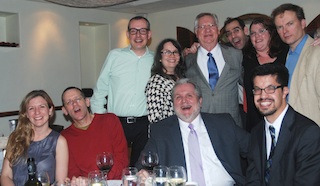
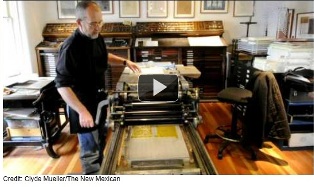
 Jackson, N.H.'s "new" library"--located in a reconstructed 19th-century barn--was showcased by Boing Boing, which noted that Jackson Public Library "is
Jackson, N.H.'s "new" library"--located in a reconstructed 19th-century barn--was showcased by Boing Boing, which noted that Jackson Public Library "is 
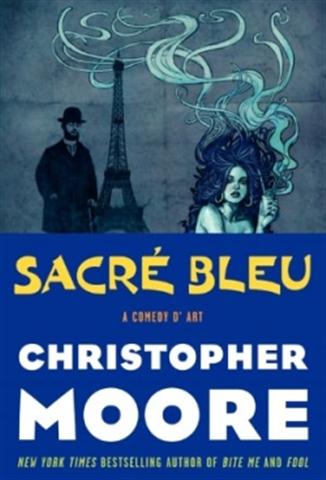 From the beginning, with novels like Practical Demonkeeping and Coyote Blue, Christopher Moore has had a knack for hitting a zany spot right between Tom Robbins and the comic fantasies of British novelist Tom Holt. Sacre Bleu continues in that vein, injecting a pair of bizarre immortal spirits into an enthusiastic, but not too reverential, tribute to the late 19th-century Paris art scene.
From the beginning, with novels like Practical Demonkeeping and Coyote Blue, Christopher Moore has had a knack for hitting a zany spot right between Tom Robbins and the comic fantasies of British novelist Tom Holt. Sacre Bleu continues in that vein, injecting a pair of bizarre immortal spirits into an enthusiastic, but not too reverential, tribute to the late 19th-century Paris art scene.